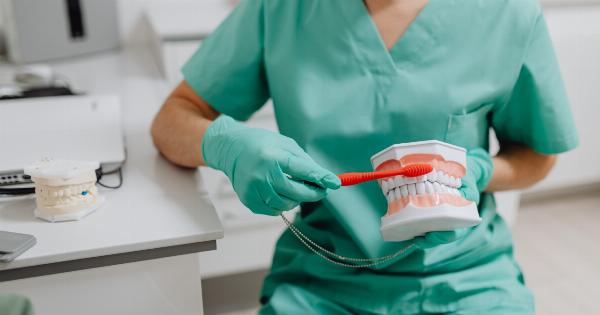Brushing your teeth is an essential part of maintaining good oral hygiene and preventing tooth decay and gum disease, but did you know that it can also play a role in cancer prevention? Poor oral hygiene has been linked to several types of cancers, including oral cancer, pancreatic cancer, and colorectal cancer. By practicing good oral hygiene and keeping your mouth healthy, you can reduce your risk of these and other types of cancer.
The Link Between Poor Oral Hygiene and Cancer
When we don’t brush our teeth regularly or effectively, bacteria in our mouths can build up and form plaque. This can cause tooth decay, gum disease, and bad breath, but it can also lead to inflammation and damage to the cells in our mouths.
Over time, this damage can increase the risk of developing cancer.
Researchers have found that poor oral health is linked to several types of cancer.
A study published in the Journal of the National Cancer Institute found that people with gum disease were 24% more likely to develop colorectal cancer than those without gum disease. Another study published in the Journal of Epidemiology and Community Health found that poor oral hygiene was associated with an increased risk of pancreatic cancer.
It’s not entirely clear why poor oral hygiene is linked to these and other types of cancer, but some researchers believe that the inflammation and cell damage caused by chronic gum disease and other oral health problems can contribute to the development of cancer.
How Brushing Your Teeth Can Help Prevent Cancer
Brushing your teeth regularly and effectively can help prevent plaque buildup, reduce the risk of gum disease, and keep your mouth healthy. This, in turn, can help reduce your risk of developing cancer.
To make sure you’re brushing your teeth effectively, be sure to use a fluoride toothpaste and brush for at least two minutes twice a day. You should also floss once a day to remove any food particles and bacteria from between your teeth.
In addition to brushing and flossing, it’s important to see your dentist regularly for checkups and cleanings.
Your dentist can help identify any potential dental problems and recommend treatments or preventative measures to keep your mouth healthy.
Other Tips for Maintaining Good Oral Hygiene
In addition to regular brushing and flossing, there are other steps you can take to maintain good oral hygiene and reduce your risk of cancer:.
- Limit your intake of sugary and acidic foods and drinks
- Quit smoking or using tobacco products
- Limit your alcohol consumption
- Drink plenty of water to help flush bacteria and food particles from your mouth
- Chew sugar-free gum to help stimulate saliva production and wash away bacteria
The Bottom Line
Brushing your teeth regularly and maintaining good oral hygiene can help prevent tooth decay, gum disease, and bad breath, but it can also play a role in cancer prevention.
By keeping your mouth healthy, you can reduce your risk of several types of cancer and improve your overall health and well-being.






























